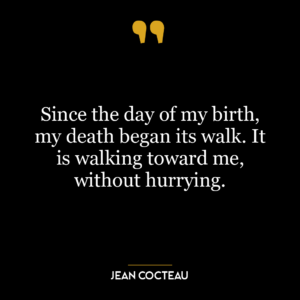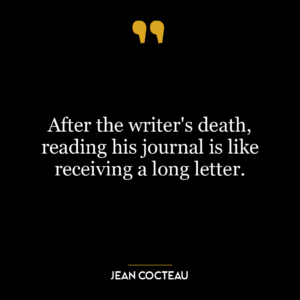This quote emphasizes the importance of living in the present moment, suggesting that doing so can alleviate the fear of death. It posits that fear of death often arises from projection into the future, imagining scenarios that may or may not happen. By focusing on the present moment, one can reduce anxiety about the unknown and the inevitable, thus reducing the fear of death.
The present moment is the only time that we truly have control over. The past is gone and cannot be changed, and the future is uncertain. By living in the present, we can fully experience life as it is happening, rather than being consumed by past regrets or future worries. This focus on the present can lead to a more fulfilled, content life because we are fully engaging with our experiences instead of being distracted by what has been or what might be.
In a society where multi-tasking and future planning are highly valued, this idea is particularly relevant. Many people spend their lives worrying about the future or dwelling on the past, missing out on the beauty and experiences of the present moment. This constant focus on what’s next can create a perpetual state of anxiety and fear, including the fear of death.
In terms of personal development, this concept could be applied by practicing mindfulness or meditation, both of which encourage a focus on the present moment. Instead of worrying about future tasks or dwelling on past mistakes, one could take a few moments each day to simply be present. This could be as simple as focusing on one’s breath, taking a moment to really taste one’s food, or taking a break from screens to appreciate the natural world. By making a conscious effort to live in the present, one could potentially reduce anxiety, increase happiness, and decrease the fear of death.
Moreover, this quote could also be interpreted as a call to action to live fully and authentically in the present. If we are not consumed by the fear of death, we might be more inclined to take risks, pursue passions, and live a life true to ourselves, rather than one dictated by societal expectations or fear.












